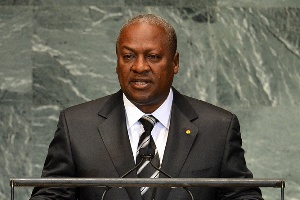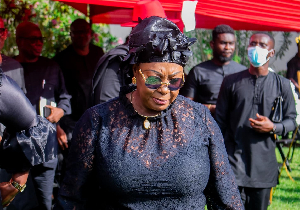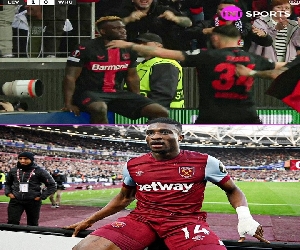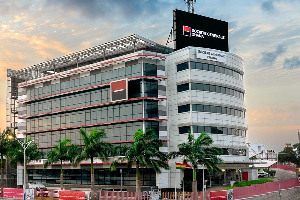Opinions of Wednesday, 31 January 2024
Columnist: Isaac Ofori
John Mahama in 2024: A moment of truth for Ghana
As we approach the December 2024 elections, all eyes are on John Mahama, the former President. His potential return to leadership has sparked a lot of discussions, especially after recent predictions made by reputable sources. EIU Fitch Solution has forecasted a victory for Mahama, and Global Info Analytics' polls have placed him ahead of Dr. Bawumia, indicating a possible shift in the political landscape.
These projections are mainly due to Ghana's current economic challenges, including rising unemployment and the high cost of living. However, a crucial question arises: Is Mahama the leader that Ghana needs to bring about change and progress?
As we ponder on Mahama's political journey, we recollect his ascent from Vice President to President, a term spanning eight years. His appointment as the head of the NDC was unforeseen, occurring after the sudden death of President Atta Mills. Mahama's subsequent election, which was plagued by disagreements and legal battles, was perceived by many as a result of sympathy rather than faith in his leadership.
It is often said that Mahama's presidential term was a success, but a closer look reveals a different story. The economy was struggling, with the Ghanaian cedi losing value against the dollar, causing widespread hardship. His administration faced allegations of mismanagement and corruption. Moreover, the 'dumsor' crisis was a notable challenge – a period of severe power outages that crippled businesses and worsened the suffering of the Ghanaian people. Mahama himself acknowledged these shortcomings and sought expert advice at SENCHI to address the situation.
The NDC is now suggesting that Mahama has learned from his past mistakes. However, it is important to scrutinize the nature of these lessons. Is he ready to rejuvenate the economy or will he stumble as he did before? His return is ambiguous, with policies that seem uncertain and a self-proclaimed need for a 'honeymoon period' to contemplate solutions to Ghana's problems. Such indecisiveness raises doubts about his ability to effectively tackle the country's issues within a practical timeframe.
When considering Mahama's potential return to power, it is crucial to examine whether he has truly progressed beyond his previous leadership which left a lasting impact of anxiety on Ghanaians. His past tenure continues to loom over his current aspirations.
The question remains: Can a leader whose previous administration was beset by obstacles lead Ghana towards a more promising future, or will his return only replicate previous disappointments? Does he still exhibit the same whining and indecisiveness as before? Ghanaians must exercise caution when it comes to the NDC and Mahama. Trust is essential, and there is no clear indication that Mahama can guarantee it when it comes to revitalizing Ghana's economy.













